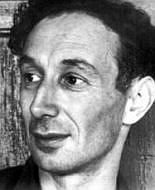
Back Alfred Jules Ayer Afrikaans Alfred Jules Ayer AN ألفرد آير Arabic الفرد آير ARZ আলফ্ৰেড জুলছ আয়াৰ Assamese Alfred Culs Ayer Azerbaijani Алфред Джулс Еър Bulgarian এ. জে. এয়ার Bengali/Bangla Alfred Jules Ayer Catalan Alfred Jules Ayer Czech
Sir A. J. Ayer | |
|---|---|
 | |
| Born | Alfred Jules Ayer 29 October 1910 St. John's Wood, London, England |
| Died | 27 June 1989 (aged 78) London, England |
| Alma mater | Christ Church, Oxford |
| Awards | Knight Bachelor (1970) |
| Era | 20th-century philosophy |
| Region | Western philosophy |
| School | |
| Institutions |
|
| Academic advisors | Gilbert Ryle[1] |
Main interests | |
Notable ideas | |
Sir Alfred Jules "Freddie" Ayer FBA (/ɛər/ AIR;[2] 29 October 1910 – 27 June 1989)[3] was an English philosopher known for his promotion of logical positivism, particularly in his books Language, Truth, and Logic (1936) and The Problem of Knowledge (1956).
Ayer was educated at Eton College and the University of Oxford, after which he studied the philosophy of logical positivism at the University of Vienna. From 1933 to 1940 he lectured on philosophy at Christ Church, Oxford.[4]
During the Second World War Ayer was a Special Operations Executive and MI6 agent.[5]
Ayer was Grote Professor of the Philosophy of Mind and Logic at University College London from 1946 until 1959, after which he returned to Oxford to become Wykeham Professor of Logic at New College.[1] He was president of the Aristotelian Society from 1951 to 1952 and knighted in 1970. He was known for his advocacy of humanism, and was the second president of the British Humanist Association (now known as Humanists UK).
Ayer was president of the Homosexual Law Reform Society for a time; he remarked, "as a notorious heterosexual I could never be accused of feathering my own nest."
- ^ a b "Alfred Jules Ayer". Stanford Encyclopedia of Philosophy. 2005. Retrieved 15 April 2016.
- ^ "Ayer". Random House Webster's Unabridged Dictionary.
- ^ Quinton, Anthony (1996). "Ayer, Alfred Jules". Biographical Dictionary of Twentieth-Century Philosophers. London: Routledge. pp. 37–39. ISBN 0-415-06043-5.
- ^ "Alfred Jules Ayer Facts". Your Dictionary. Retrieved 18 April 2015.
- ^ Scott-Smith, Giles (2002). The politics of apolitical culture: the Congress for Cultural Freedom, the CIA, and post-war American hegemony. London: Routledge. p. 109. ISBN 978-0-415-24445-9.